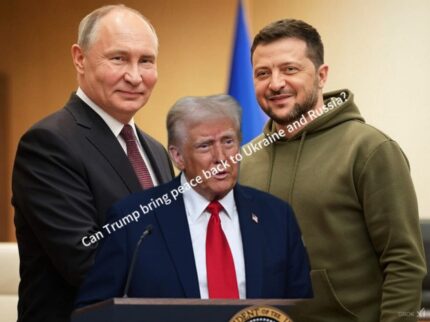U.S. President Donald Trump has publicly expressed his frustration with Russian President Vladimir Putin, revealing he is “very angry” and “pissed off” over the slow progress in ceasefire negotiations in Ukraine. Speaking in an interview with NBC News, Trump criticized Putin for questioning the credibility of Ukrainian President Volodymyr Zelensky and warned of severe economic repercussions should Russia fail to commit to a truce.
Trump threatened to impose a 50% tariff on countries purchasing Russian oil if a ceasefire deal is not reached, signaling a stark shift in his approach toward Moscow. “If Russia and I are unable to make a deal on stopping the bloodshed in Ukraine, and if I think it was Russia’s fault—which it might not be—I am going to put secondary tariffs… on all oil coming out of Russia,” Trump declared.
A Shift in Trump’s Stance on Russia
Trump’s remarks mark a notable departure from his previous tone regarding Russia. Throughout the ongoing war, he has faced criticism for being too accommodating to Putin, often appearing to pressure Ukraine into making concessions while sparing Moscow from direct condemnation.
However, his latest statement puts the onus on Russia to act. By openly expressing anger and warning of economic consequences, Trump appears to be taking a harder stance, possibly as part of a strategic move to push Putin toward negotiations. European leaders, who had feared Trump’s previous coziness with the Kremlin, may see this as a more assertive U.S. position on the war.
The Threat of Secondary Tariffs
One of the most significant aspects of Trump’s statement is his warning of secondary tariffs, a move that could impact not just Russia but also major global economies. Secondary tariffs impose penalties on countries that continue trade relations with a sanctioned nation, potentially affecting nations like China and India, the largest buyers of Russian oil.
“There will be a 25% tariff on oil and other products sold in the United States, secondary tariffs,” Trump said, adding that the measure could escalate to a 50% rate if Russia does not comply within a month. This move could drastically impact global oil markets and put additional pressure on Russia’s economy, which has already suffered due to Western sanctions.
Zelensky and Ukraine’s Response
Following Trump’s interview, President Zelensky took to social media to reaffirm Ukraine’s commitment to peace but also to caution against Russia’s prolonged tactics. “Russia continues looking for excuses to drag this war out even further,” Zelensky wrote, accusing Moscow of repeating the same strategy it employed in 2014 when it annexed Crimea.
He further emphasized that Ukraine remains open to negotiations but will not accept any settlement that undermines its sovereignty. “This is dangerous for everyone—and there should be an appropriate response from the United States, Europe, and all our global partners who seek peace,” he added.
The Broader Geopolitical Implications
Trump’s stance on the Russia-Ukraine war could have far-reaching implications for global diplomacy and security. His remarks came after a trilateral meeting in Paris with French President Emmanuel Macron and Zelensky, where discussions centered around potential pathways to peace.
Meanwhile, the Kremlin has maintained that it is open to negotiations but on its own terms. Moscow continues to demand Ukraine withdraw from four annexed regions, a condition Kyiv strongly rejects. The ongoing military aid from the U.S. and NATO to Ukraine further complicates the situation, with Washington recently approving a new $1 billion package aimed at bolstering Ukraine’s defenses ahead of any ceasefire talks.
Trump also used the NBC interview to comment on other global issues, notably issuing a fresh warning to Iran over its nuclear program. He reiterated that military action was an option if Tehran refused to negotiate, stating, “It will be bombing the likes of which they have never seen before.”
As the war in Ukraine enters its fourth year, Trump’s comments add a new dimension to the diplomatic efforts aimed at ending the conflict. Whether his threats will yield concrete results remains to be seen, but for now, they signal a more aggressive approach toward Russia’s role in prolonging the war.














